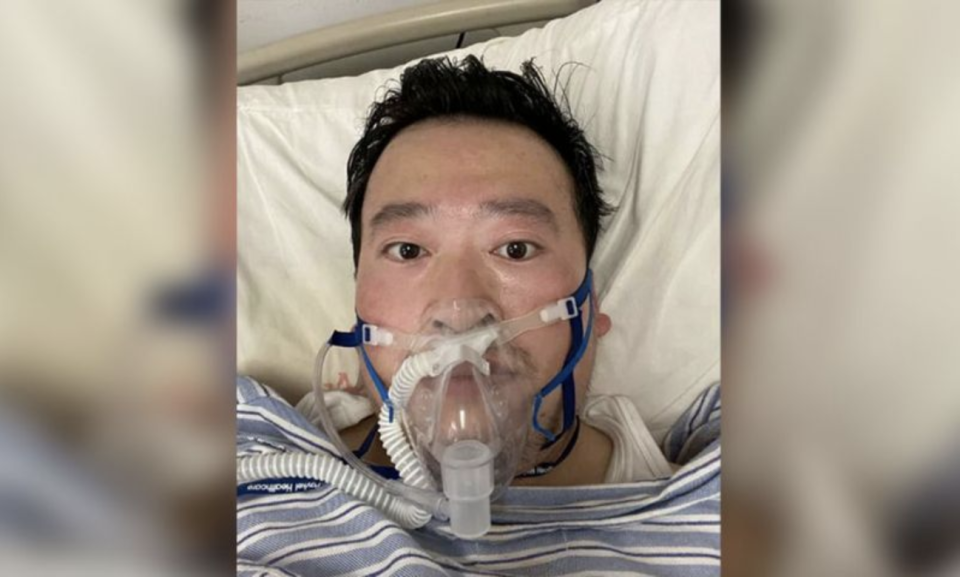Doctor who tried to warn people about coronavirus has died
The Chinese doctor who was one of the original whistleblowers on coronavirus has died, according to the New York Times, the Washington Post and ABC News. Earlier in the day, Wuhan City Central Hospital, where Li Wenliang was being treated, said on the Chinese social media site Weibo that doctors there were trying to save him.
The 34-year-old initially made news after he was punished by Wuhan police for alerting people about coronavirus in its early stages. Michael Ryan, PhD, the executive director of the World Health Organization’s Health Emergencies Program, shared his condolences on Twitter. “We are deeply saddened by the passing of Dr. Li Wenliang. We all need to celebrate work that he did on #2019nCoV,” he wrote.

Li spoke out earlier this week about his treatment by the Chinese government in the aftermath of warning colleagues on WeChat (a Chinese messaging app) about coronavirus before the Chinese government announced the outbreak was happening. Li was reportedly accused by Wuhan police of spreading rumors and rebuked for "spreading rumors online" and "severely disrupting social order.”
Li said in an interview with CNN that he was scared he was going to be arrested. "My family would worry sick about me, if I lose my freedom for a few days," he said. He reportedly had to sign a statement that acknowledged he committed a misdemeanor and promised not to commit further "unlawful acts." He tested positive for the coronavirus on Feb. 1 after unknowingly treating a patient who had it.
Coronavirus has now infected 28,353 people worldwide and caused 565 deaths, according to data gathered by Johns Hopkins University.
The news of Li’s severe illness raises a lot of new questions about coronavirus.
Is it normal for someone of Li’s age to develop a severe form of the virus, and possibly even die from it?
Experts say it’s unusual. “Preliminary evidence suggests older adults and persons with underlying health conditions are at higher risk for severe disease or death,” Richard Watkins, MD, an infectious disease physician in Akron, Ohio, and an associate professor of internal medicine at Northeast Ohio Medical University, tells Yahoo Lifestyle.
However, experts say there’s still a fair amount that they don’t know about novel coronavirus, which was only recently found to infect humans. “We still don’t know very much about the age distribution of the most serious cases or deaths,” William Schaffner, MD, an infectious disease specialist and professor at the Vanderbilt University School of Medicine, tells Yahoo Lifestyle.
Like the flu and other respiratory illnesses, though, it’s possible for an otherwise healthy person to die of coronavirus, infectious disease expert Amesh A. Adalja, MD, senior scholar at the Johns Hopkins Center for Health Security, tells Yahoo Lifestyle. “It’s certainly not impossible,” he says.
Are doctors more likely to get severe cases of coronavirus?
Not necessarily, but they’re more likely to actually contract it, Watkins says. “Clearly, this is spreading in the community in China and a doctor there is going to have more intimate contact with infected people than someone who is not a doctor,” Adalja says.
As a whole, doctors tend to “get more disproportionally infected,” Adalja says. According to reports, Li sought care soon after developing symptoms of coronavirus, but that’s not always the case for other doctors. “Doctors tend to be bad patients and ignore symptoms in general and try to weather through things,” Adalja says. “They can sometimes have a more severe presentation because they put off seeing someone for an illness.”
How likely are people to die from coronavirus?
Based on the latest data, coronavirus has about a 2 percent mortality rate, meaning that about 2 percent of people who are officially diagnosed with the virus have died from it. However, Schaffner stresses that the real number is likely much lower.
“We don’t know exactly what the death rate is because we don’t know about all the milder cases of coronavirus,” he says. “People with milder symptoms aren’t getting tested. Right now, the mortality rate appears to be lower than SARS but higher than influenza. But we don’t know for sure.”
Read more from Yahoo Lifestyle:
Follow us on Instagram, Facebook and Twitter for nonstop inspiration delivered fresh to your feed, every day.
